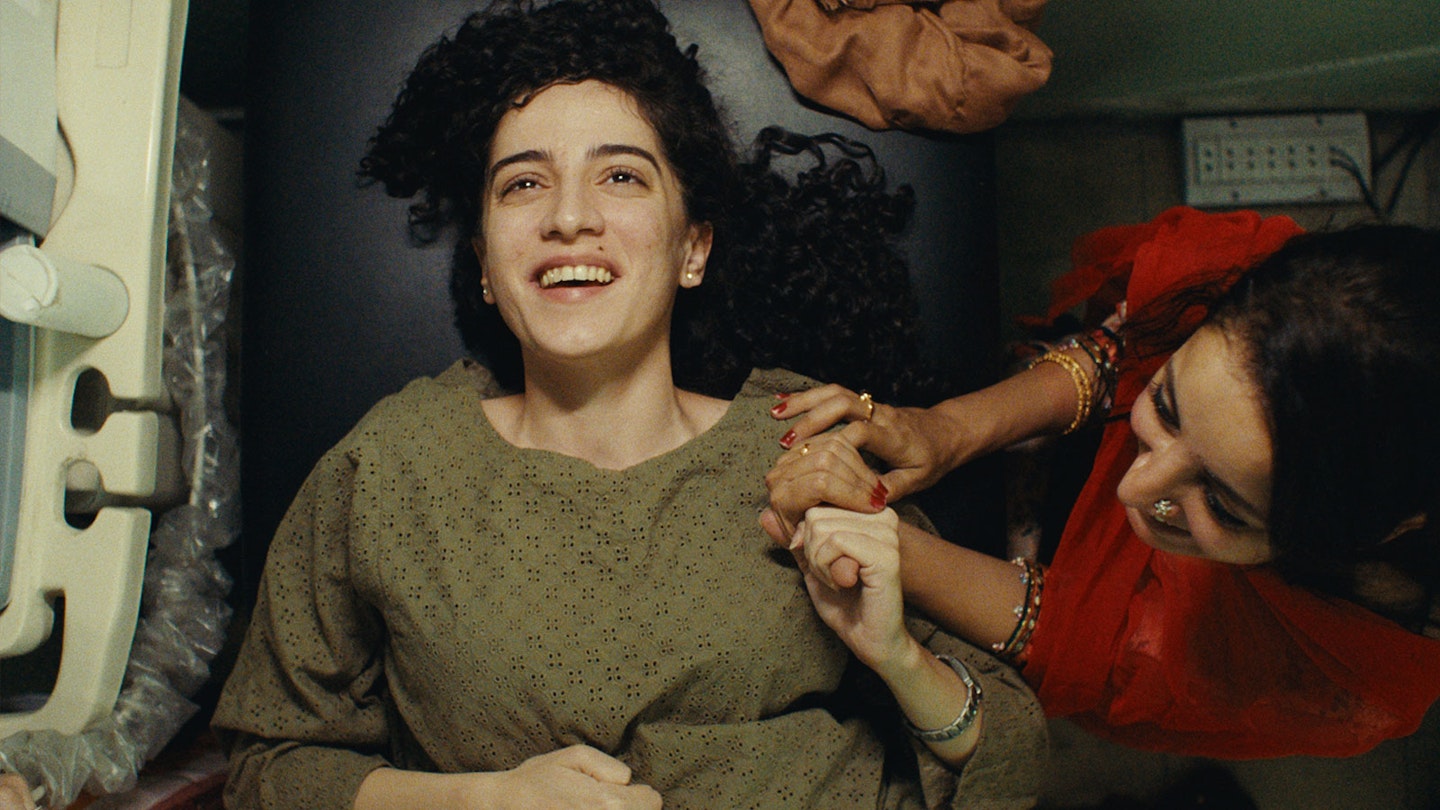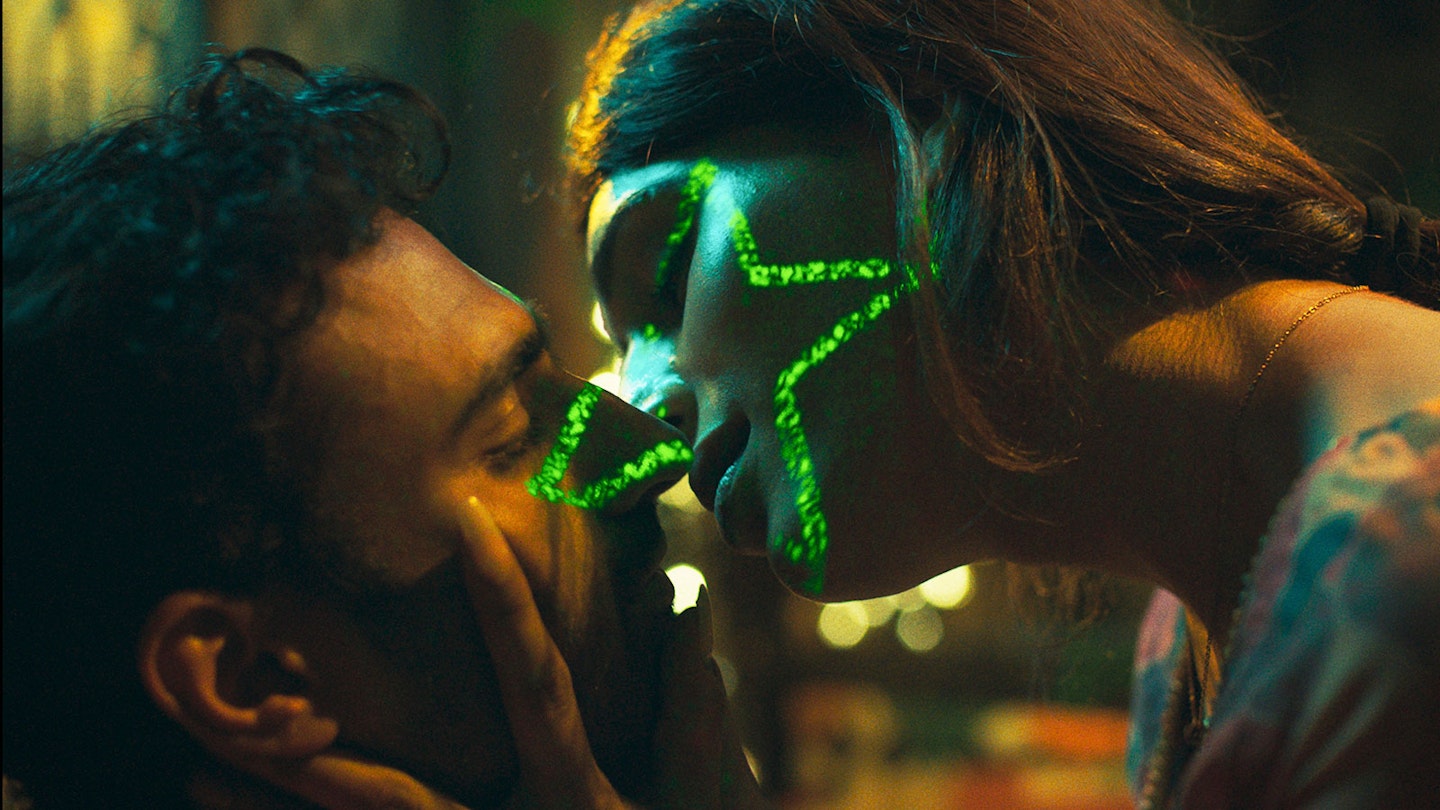That a country like Pakistan could produce a film like Joyland is, in itself, fairly remarkable. The film’s story — of an unorthodox, extra-marital relationship between a married man and trans woman — caused a huge stir in its country of origin, where conservative religious values hold sway and LGBTQ+ rights remain woefully backwards; the film’s release was banned by the right-wing government there last year, only to be unbanned (with some scenes censored) after voices as loud as Amnesty International and Malala Yousafzai spoke up.
Those expecting something provocative or shocking might be surprised by the controversy once they see the film, however: this is actually a very thoughtful, nuanced, sensitive story of queer love, and a deeply considered exploration of how modern ideas of gender and sexuality sit awkwardly in a rigidly traditional society that still expects marriages to be arranged, men to be breadwinners, and women to be homemakers.

It is, above anything else, a vivid and beautifully pitched character study, told with a formidable ensemble of actors, and a script that treats each role with respect and consideration. Most impressive is Alina Khan as Biba, depicted as a transgender woman with real agency and power, in a culture that can treat her like a second-class citizen. She is tough and sharp-tongued — we get brief glimpses of Lahore’s khwaja sira (“third gender”) community that supports and sustains her — but vulnerable and flawed, too. Khan is an amazing find: making her feature debut here (like many on the cast list), her screen presence is immediately head-turning.
A genuinely remarkable film, and deserves to be seen widely — in Pakistan and beyond.
Little wonder that Haider (Ali Junejo) soon falls under Biba’s spell. Under pressure from his father to meet certain societal expectations (get a job, provide a son), Haider accepts a gig at an erotic dance show, initially, it seems, just to prove he’s not a washout. He is a gentle soul and, it’s implied, perhaps somewhere on the queer spectrum (he once starred as Juliet in a school production of Romeo And Juliet) — but his extra-marital affair with her is played out without sensationalism. He is tenderly protective of Biba, while also grappling with a sexual and romantic desire he doesn’t fully comprehend.
Filming with natural lighting but also stylish, vibrantly inventive cinematography, first-time director Saim Sadiq (who also co-wrote the script with American filmmaker Maggie Briggs) affords nearly every character this level of care. In another, more soapy film, Haider’s wife Mumtaz (a superb Rasti Farooq, another feature first-timer) might have been little more than a ‘wronged-woman’ caricature, but she gets layers to her, too: trapped by the patriarchal system that suffocates her own desires.
Mumtaz becomes the unexpected focus of the film’s final act, which takes such an unexpectedly tragic turn that the film’s title starts to feel misleading; after the subtlety of what came before, the film’s conclusion is almost unduly melodramatic. But the overall effect still lands. This is a genuinely remarkable film, and deserves to be seen widely — in Pakistan and beyond.
